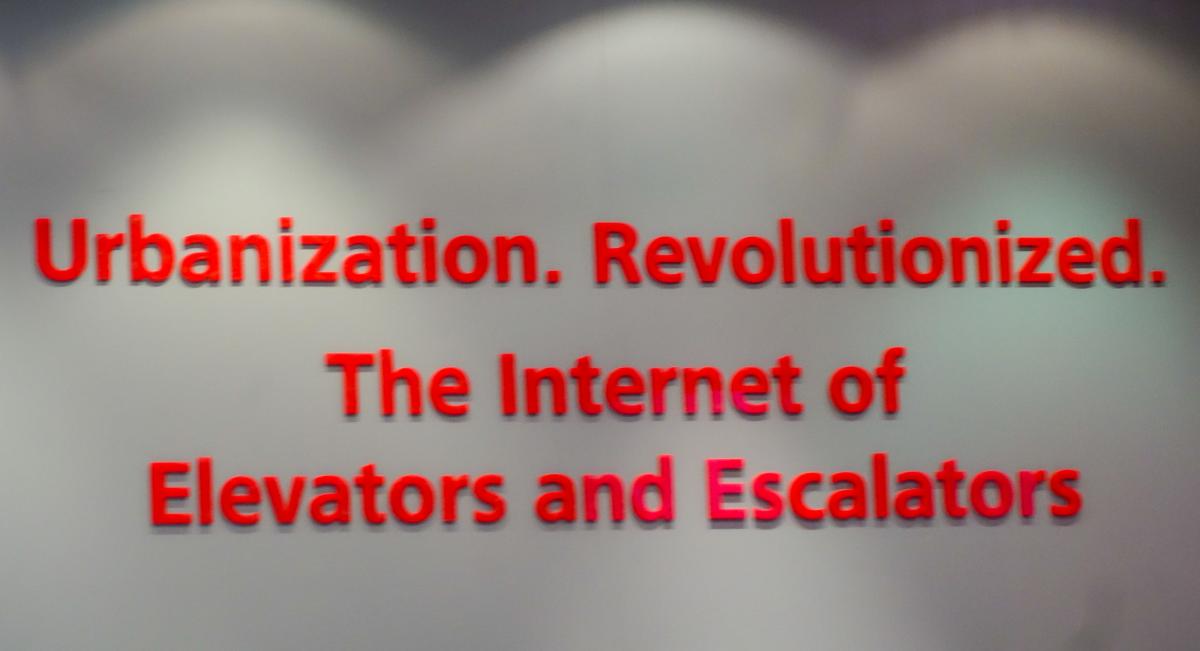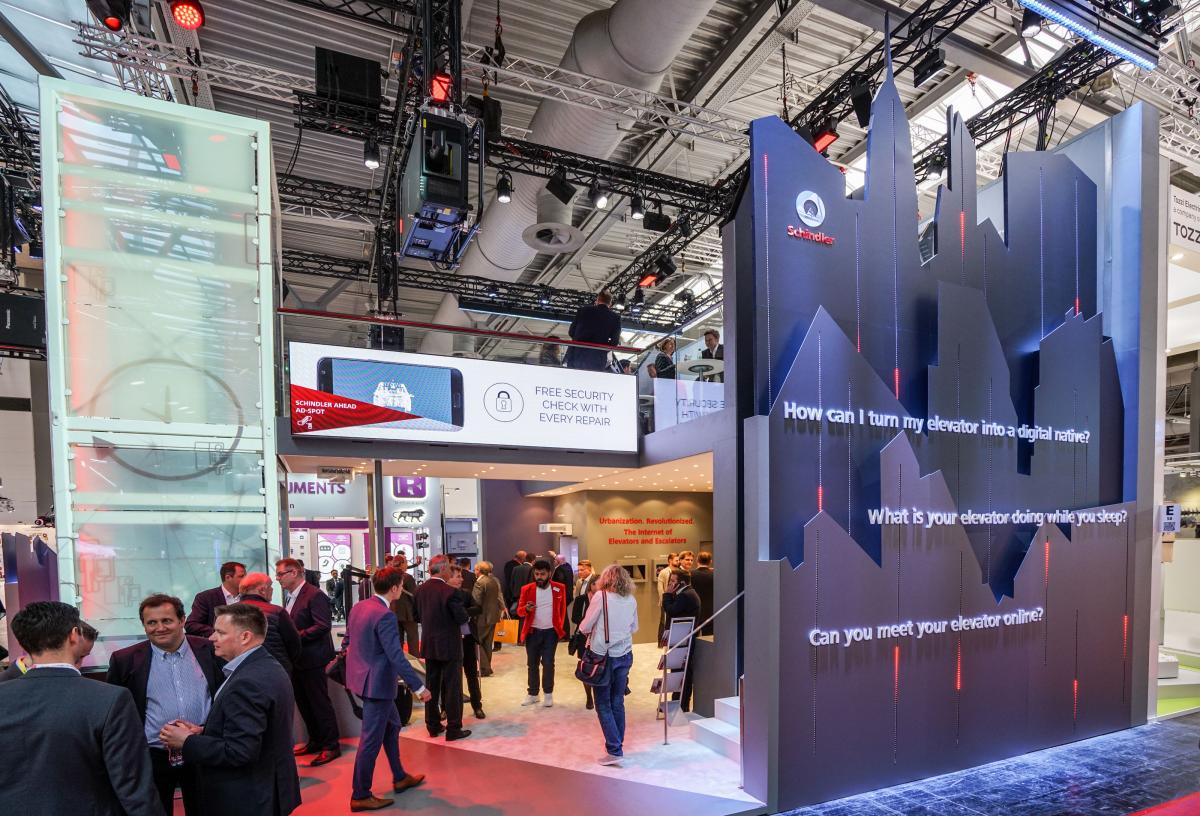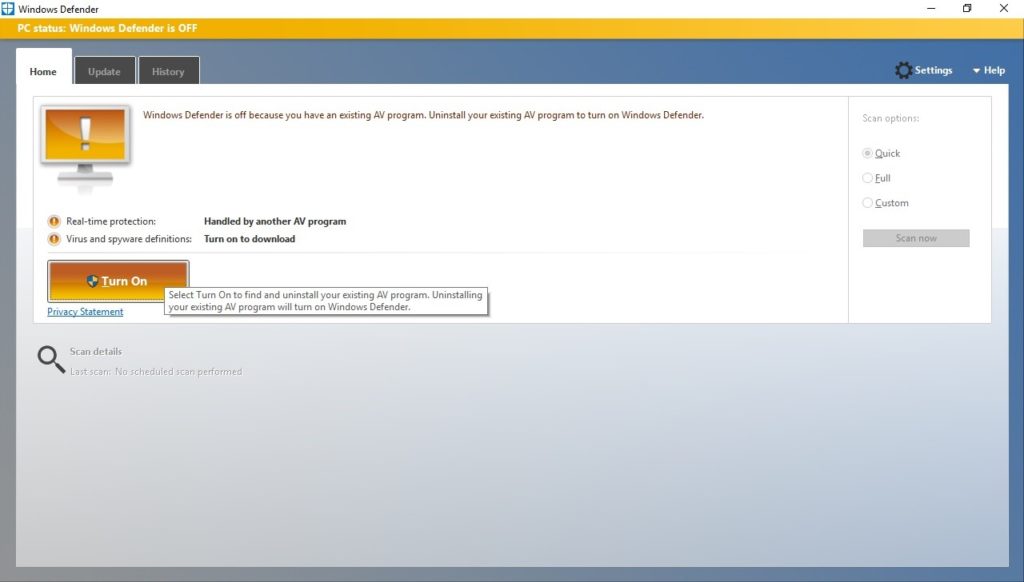May 3, 2017
An Elevator in the Internet vs. the Internet in an Elevator.
I have a very high opinion of Schindler, the world’s leading manufacturer of elevators and escalators. (Next time you use these modes of transport, take note of the manufacturer’s logo.) In my view, this company deserves lots of respect and its business practices are worthy of study and emulation. However, when I see the company’s booth at an exhibition, replete with slogans like this, it sends a shiver down my spine, I start feeling uncomfortable about the world around me, and my left eye starts to twitch. Why?
There were three slogans that I had a particular problem with:
– How can I turn my elevator into a digital native?
– What is your elevator doing while you sleep?
– Can you meet your elevator online?
If you take a closer look, you can see them in this photo:
It may not bother everyone, but it makes me a little apprehensive. Of course, you understand… An elevator in the Internet is not as dangerous as the Internet in an elevator! OK, that’s tonight’s nightmares taken care of. No, I’m not trying to scare you. And I certainly wouldn’t want anyone to dream about the elevator from this cartoon!
The venue is Hannover Messe, the yearly mega-exhibition of industrial solutions. It’s all about automation, manufacturing, the energy industry, all sorts of robots, the rarest spare parts and other types of modern industrial magic.




